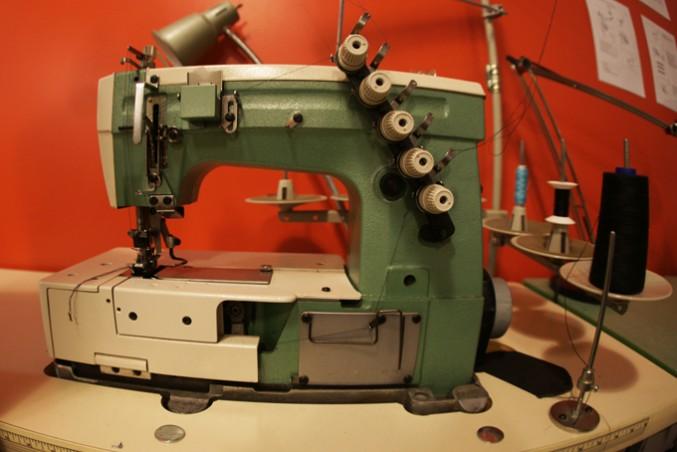By Amanda Skrabucha
Before landing her first job in the fashion industry, Amanda McGroarty had to send out approximately 40 resumes. She was ready to give up the hunt when she was offered a volunteer positon at Ryerson University’s Fashion Zone, which then turned into a paid placement.
Canada’s fashion industry is competitive, especially for young designers graduating from school. With a majority of clothing being imported, Canada has seen a 23 per cent drop in Canadian-made clothing between 2004 and 2008. As a result of this trend, the $3.6 billion clothing apparel GDP in 2002 had dropped to $1.4 billion in 2011. Being more dependent on international trade has limited job opportunities for Canadian designers.
McGroarty, now a fourth-year fashion design student and fashion representative in the Ryerson Communication and Design Society (RCDS), realized in her time at school that having an artistic flair for fabrics, colours and patterns is not always enough to land a job, while persistence and networking can be.
“Toronto has a large fashion presence and as a result, there is a lot of opportunity if you actively look,” said McGroarty. “Unfortunately free labour, interning, is still the norm for breaking into the industry.”
Robert Ott, chair of Ryerson’s school of fashion, said they look at fashion as both an art and a business.
“Students need to ultimately understand how they fit into the industry and what kind of contribution they are going to make,” said Ott.
Ryerson fashion students are known for being well-rounded with their practical and theoretical training, and this balance helps them go into the industry with a realistic outlook, according to Ott.
“We are preparing students from different perspectives,” said Ott. “We give them realistic opportunities in how the industry operates by asking students to participate in networking events and events in fashion cultural activities whether it is going to Toronto Fashion Incubator, exhibits in museums or Fashion Week.”
Students are expected to complete 400 hours of internships over the four years in the program as part of their hands-on training.
Olga Okhrimenko, managing director of the Fashion Zone and a fifth-year fashion design student, first got her foot into the fashion world in her second year by organizing fashion events and shows with a friend. Her goal was to fully utilize all the resources and opportunities that the program provided.
With Ryerson’s financial support, Okhrimenko started up the Fashion Zone in 2013, which is an incubator for students with fashion-inspired businesses.
She said her success with the zone made her realize how important it is for students to have the confidence to seize every opportunity during school in order to gain experience.
“As far as I know in my experience, nobody is looking at grades,” said Okhrimenko. “They are really looking at portfolio and projects that have been done.”
Okhrimenko also discussed the importance of time management which she learned in the Fashion Zone.
“Students run into problems [with] time management. They need to have this skill at school to do assignments, it is the same in the industry — everything needs to be based on the time,” said Okhrimenko.
“Often what is learnt in the classroom can be applied in the various internships, as well as employment after graduation,” said McGroarty. “I am not worried. I have been exposed to various aspects of the industry and am excited to discover more.”











Halla Koudsi
As a graduate from a fashion degree at Ryerson with honours and having been fully invested with this multi billion dollar industry, it is not fair to expect and assume our future students should ever have to perform skilled labor for free, not for a day or for a year. not only does it discourage people from doing what they love but it diminishes our industry and lowers its value, it is an art, almost a lost one. as educators and influencers we shouldn’t tell student ‘that’s the way it is’ we should push them to ask for what is right and fight for their rights as future experts and designers. In my early days, I had to perform up to 400 hours of free labor to graduate my degree and I did an internship that served me none. why? because I didn’t have time to look for the right one, I needed to study and work 2 jobs to pay my rent and tuition and I had no professor to guide me or assist me in my fight.
Push them in the direction where they can perform their best and get their worth even if its minimal in the early days, but a small reward is better than none, and it is huge motivating factor of growth of our industry. let’s change our attitudes and bring back value to our industry. why does the finance industry offer all sorts of paid internships for students and the fashion industry is simply just free labor and low wages? don’t sit back and say ‘it’s unfortunate’ make change. I try that everyday.